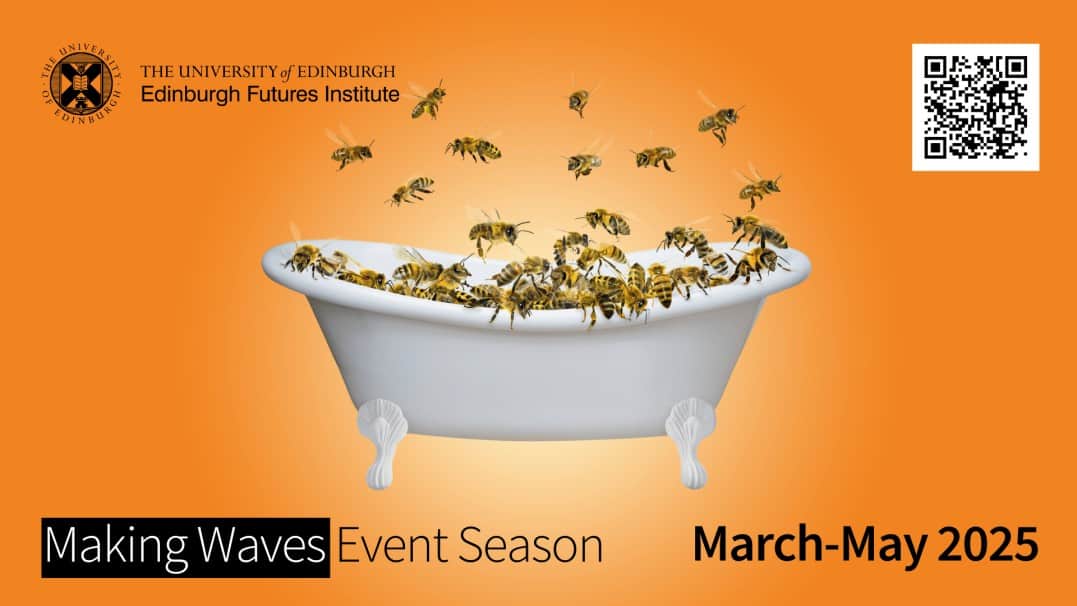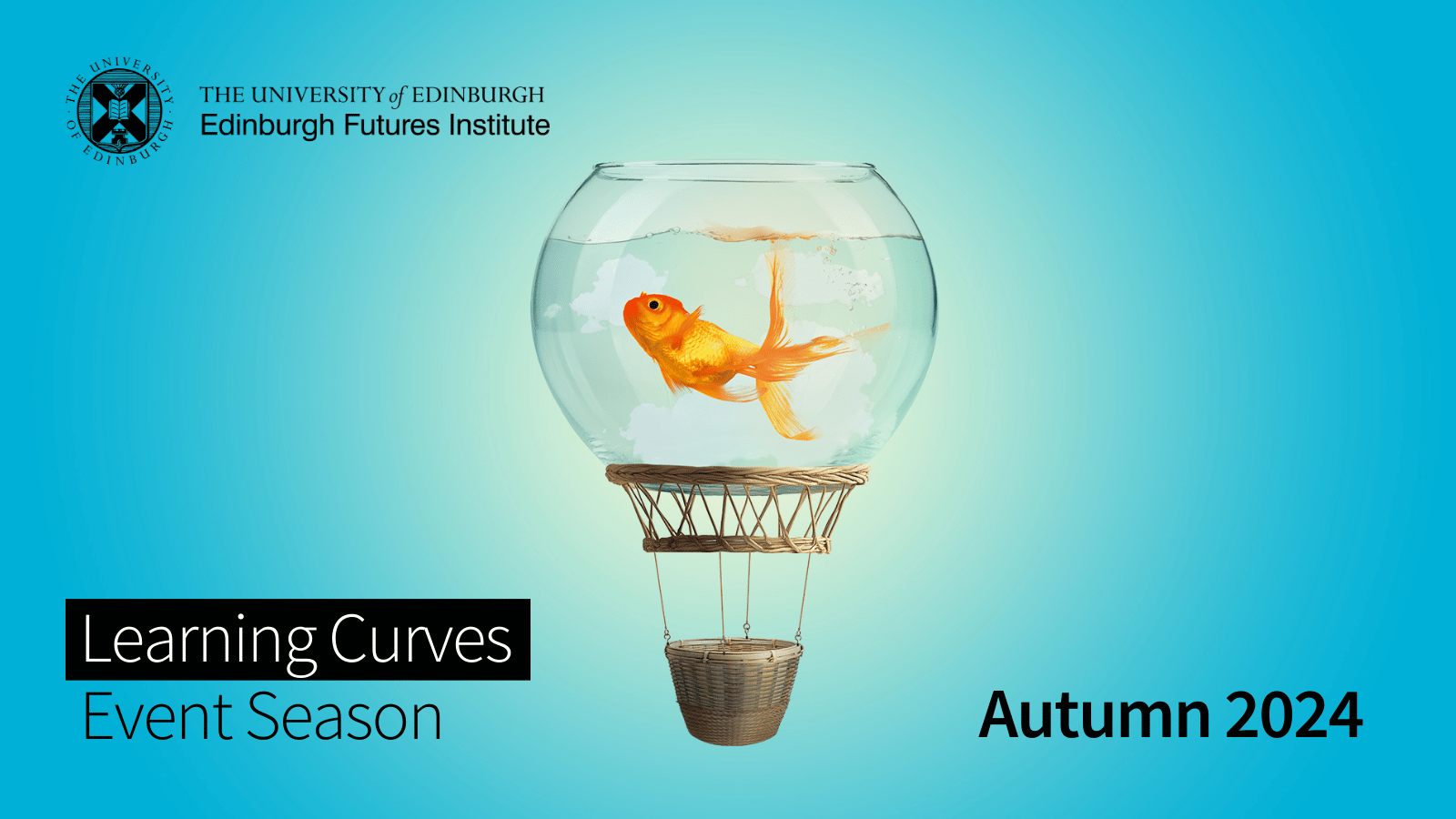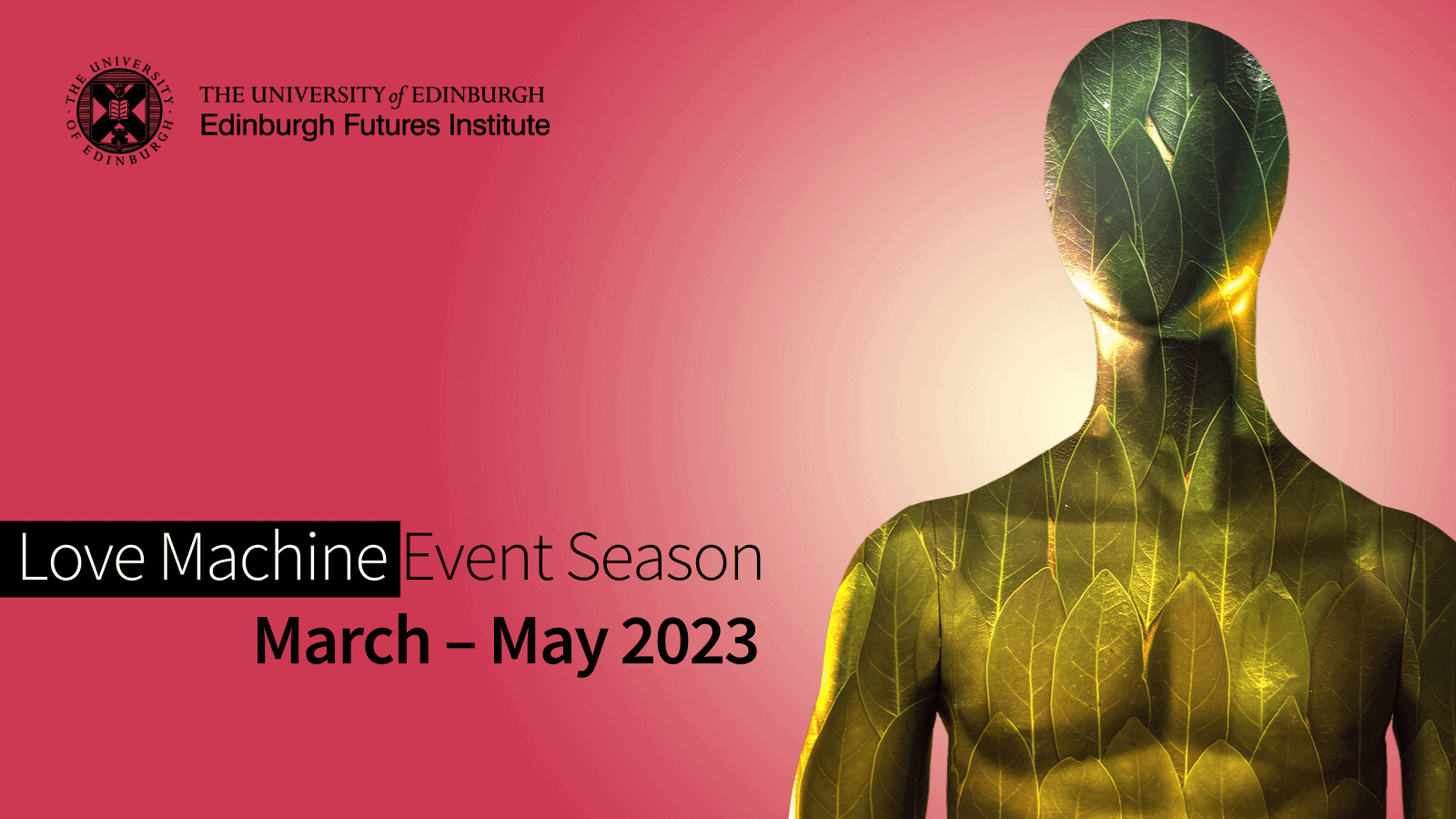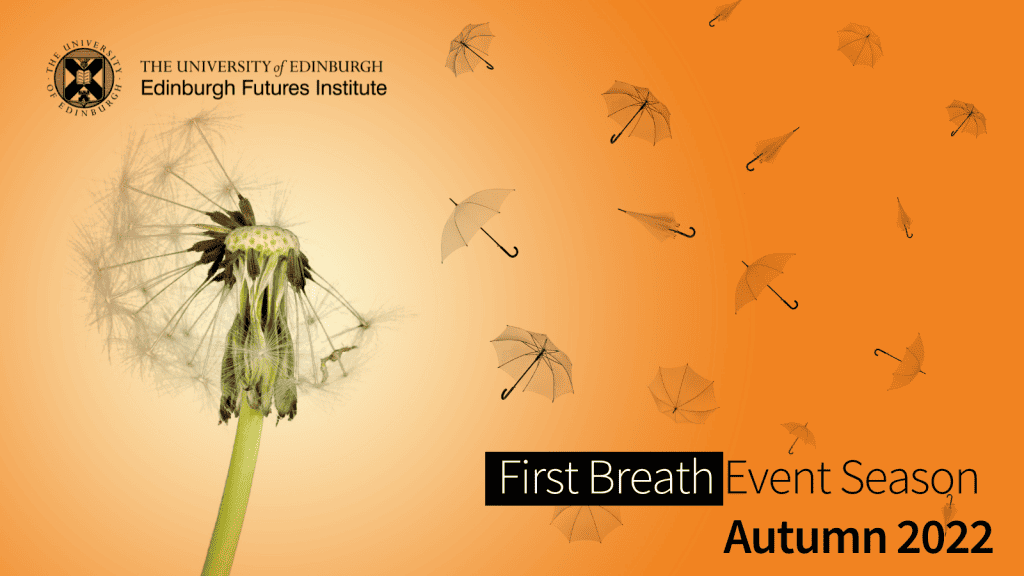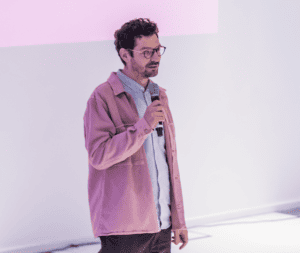
- This event has passed.
Edinburgh Futures Conversations – Shaping our AI Futures
6th March 2023 6:00 PM – 8:00 PM GMT
The flagship panel event opens the fourth in the University of Edinburgh’s Futures Conversations series.
Given the enormous advances in Artificial Intelligence (AI), many believe humanity is on the threshold of the most profound technological revolution it has ever witnessed. AI already affects our everyday lives, and our hopes and anxieties around AI run high. Some predict that further development of AI will put us on a path to human extinction while others believe it will usher in a new era of compassion, non-violence, and prosperity.
Against a background of unrelenting cultural and geopolitical tensions, looming planetary catastrophes, and big challenges in global health, justice, and democracy, will AI turn out to be yet another existential risk? Or will it help us address the major challenges of our times?
In this Futures Conversations event, we bring together leading experts from the worlds of science, politics, and civil society to debate what our AI futures may bring, and to develop ideas for what is needed to advance our collective ability to put AI to the best possible use. The conversation will build on a series of workshops where different visions of our AI future were explored, and which had a specific emphasis on hearing the voices of people and communities that are traditionally underrepresented in these debates.
Against the ideas developed in these workshops, we will discuss questions such as, who will determine our AI future, how AI and humanity can evolve alongside each other, what being human in an AI world will mean, and how AI-driven economies and societies will work. Rather than providing principles for what AI itself “should be like”, we aim to evolve into what we desire an “AI-ready” society could look like, and into new ideas for how we might build this future.
Speaker Biographies

Petra Molnar is a lawyer and anthropologist specialising in technology, migration, and human rights. She is the Associate Director of the Refugee Law Lab at York University and runs the Migration and Technology Monitor, a multilingual archive of work interrogating technological experiments on people crossing borders, funded by the Open Society Foundations. Petra is also the co-author of “Bots at the Gate,” an internationally recognized report on the human rights impacts of automated decision-making in immigration and refugee systems. Petra is a 2022-2023 Fellow at the Berkman Klein Centre for Internet & Society at Harvard University.

Professor Kate Crawford is a leading international scholar of the social implications of artificial intelligence. She is a Research Professor at USC Annenberg in Los Angeles, a Senior Principal Researcher at MSR in New York, an Honorary Professor at the University of Sydney, and the inaugural Visiting Chair for AI and Justice at the École Normale Supérieure in Paris. Her latest book, Atlas of AI (Yale, 2021) won the Sally Hacker Prize from the Society for the History of Technology, the ASSI&T Best Information Science Book Award, and was named one of the best books in 2021 by New Scientist and the Financial Times. Over her twenty-year research career, she has also produced groundbreaking creative collaborations and visual investigations. Her project Anatomy of an AI System with Vladan Joler is in the permanent collection of the Museum of Modern Art in New York and the V&A in London, and was awarded with the Design of the Year Award in 2019 and included in the Design of the Decades by the Design Museum of London. Her collaboration with the artist Trevor Paglen, Excavating AI, won the Ayrton Prize from the British Society for the History of Science. She has advised policy makers in the United Nations, the White House, and the European Parliament, and she currently leads the Knowing Machines Project, an international research collaboration that investigates the foundations of machine learning.

Stuart Russell is a Professor of Computer Science at the University of California at Berkeley, holder of the Smith-Zadeh Chair in Engineering, and Director of the Center for Human-Compatible AI and the Kavli Center for Ethics, Science, and the Public. He is a recipient of the IJCAI Computers and Thought Award and Research Excellence Award and held the Chaire Blaise Pascal in Paris. In 2021 he received the OBE and gave the Reith Lectures. His book Artificial Intelligence: A Modern Approach (with Peter Norvig) is the standard text in AI, used in 1500 universities in 135 countries. The current emphasis of his research is on the long-term future of artificial intelligence and its relation to humanity. He has developed a new global seismic monitoring system for the nuclear-test-ban treaty and is currently working to ban lethal autonomous weapons.

Pascale Fung is a Chair Professor at the Department of Electronic & Computer Engineering at The Hong Kong University of Science & Technology (HKUST), and a visiting professor at the Central Academy of Fine Arts in Beijing. She is an expert on the Global Future Council, a think tank for the World Economic Forum. She represents HKUST on Partnership on AI to Benefit People and Society. She is on the Board of Governors of the IEEE Signal Processing Society. She is a member of the IEEE Working Group to develop an IEEE standard – Recommended Practice for Organizational Governance of Artificial Intelligence. Her research team has won several best and outstanding awards at ACL, ACL and NeurIPS workshops.

William Isaac is a Staff Research Scientist at DeepMind, Advisory Board Member of the Human Rights Data Analysis Group, and Research Affiliate at Oxford University Centre for the Governance of AI. His research focuses on the societal impact and governance of emerging technologies. Prior to DeepMind, William served as an Open Society Foundations Fellow. His research has been featured in publications such as Science, New York Times, and the MIT Technology Review.

Shannon Vallor is the Baillie Gifford Professor in the Ethics of Data and Artificial Intelligence in the University of Edinburgh’s School of Philosophy. She directs the Centre for Technomoral Futures in the Edinburgh Futures Institute and co-directs the AHRC’s Enabling a Responsible AI Ecosystem programme. She is also a Fellow of the Alan Turing Institute. Professor Vallor’s research explores how emerging technologies reshape human moral and intellectual character, and maps the ethical challenges and opportunities posed by new uses of data and artificial intelligence. Her work includes advising academia, government and industry on the ethical design and use of AI.
Chair

Michael Rovatsos is Professor of Artificial Intelligence at the University of Edinburgh where he is also head of the Bayes Centre, the University’s Data Science and AI innovation hub. He has over 20 years of experience in AI research, working primarily on systems where artificial or human agents collaborate or compete with each other. His work has focused on ethical aspects of AI such as fairness, diversity-awareness, and responsibility. He has published around 100 scientific articles and has been involved in research projects that have received over £18 million of external funding.
Please note this is a hybrid event.
Important notice: This event will be photographed/recorded, and images may be used for future marketing, promotional or archive purposes. If you would prefer not to be photographed, please let us know at the event.

